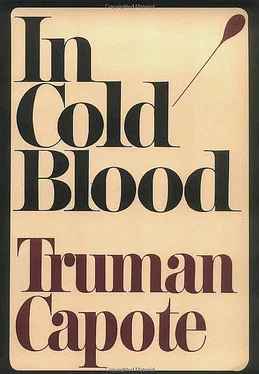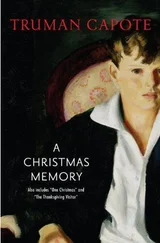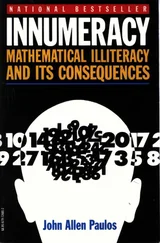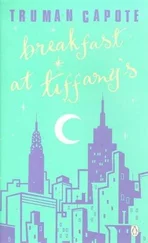“There’s got to be something wrong with somebody who’d do a thing like that,” Perry said.
“Deal me out, baby,” Dick said. “I’m a normal.” And Dick meant what he said. He thought himself as balanced, as sane as anyone—maybe a bit smarter than the average fellow, that’s all. But Perry—there was, in Dick’s opinion, “something wrong” with Little Perry. To say the least. Last spring, when they had celled together at Kansas State Penitentiary, he’d learned most of Perry’s lesser peculiarities: Perry could be “such a kid,” always wetting his bed and crying in his sleep (“Dad, I been looking everywhere, where you been, Dad?”), and often Dick had seen him “sit for hours just sucking his thumb and poring over them phony damn treasure guides.” Which was one side; there were others. In some ways old Perry was “spooky as hell.” Take, for instance, that temper of his. He could slide into a fury “quicker than ten drunk Indians.” And yet you wouldn’t know it. “He might be ready to kill you, but you’d never know it, not to look at or listen to,” Dick once said. For however extreme the inward rage, outwardly Perry remained a cool young tough, with eyes serene and slightly sleepy. The time had been when Dick had thought he could control, could regulate the temperature of the sudden cold fevers that burned and chilled his friend, he had been mistaken, and in the aftermath of that discovery, had grownvery unsure of Perry, not at all certain what to think—except that he felt he ought to be afraid of him, and wondered really why he wasn’t.
“Deep down,” Perry continued, “way, way rock-bottom, I never thought I could do it. A thing like that.”
“How about the nigger?” Dick said. Silence. Dick realized that Perry was staring at him. A week ago, in Kansas City, Perry had bought a pair of dark glasses—fancy ones with silver-lacquered rims and mirrored lenses. Dick disliked them; he’d told Perry he was ashamed to be seen with “anyone who’d wear that kind of flit stuff.” Actually, what irked him was the mirrored lenses; it was unpleasant having Perry’s eyes hidden behind the privacy of those tinted, reflecting surfaces.
“But a nigger,” said Perry. “That’s different.” The comment, the reluctance with which it was pronounced, made Dick ask, “Or did you? Kill him like you said?” It was a significant question, for his original interest in Perry, his assessment of Perry’s character and potentialities, was founded on the story Perry had once told him of how he had beaten a colored man to death.
“Sure I did. Only—a nigger. It’s not the same.” Then Perry said, “Know what it is that really bugs me? About the other thing? It’s just I don’t believe it—that anyone can get away with a thing like that. Because I don’t see how it’s possible. To do what we did. And just one hundred percent get away with it. I mean, that’s what bugs me—I can’t get it out of my head that something’s got to happen.”
Though as a child he had attended church, Dick had never “come near” a belief in God; nor was he troubled by superstitions. Unlike Perry, he was not convinced that a broken mirror meant seven years’ misfortune, or that a young moon if glimpsed through glass portended evil. But Perry, with his sharp and scratchy intuitions, had hit upon Dick’s one abiding doubt. Dick, too, suffered moments when that question circled inside his head: Was it possible—were the two of them “honest to God going to get away with doing a thing like that”? Suddenly, he said to Perry, “Now, just shut up!” Then he gunned the motor and backed the car off the promontory. Ahead of him, on the dusty road, he saw a dog trotting along in the warm sunshine.
Mountains. Hawks. Wheeling in a white sky.
When Perry asked Dick, “Know what I think?” he knew he was beginning a conversation that would displease Dick, and one that, for that matter, he himself would just as soon avoid. He agreed with Dick: Why go on talking about it? But he could not always stop himself. Spells of helplessness occurred, moments when he “remembered things”—blue light exploding in a black room, the glass eyes of a big toy bear—and when voices, a particular few words, started nagging his mind: “Oh, no! Oh, please! No! No! No! No! Don’t! Oh, please don’t, please!” And certain sounds returned—a silver dollar rolling across a floor, boot steps on hardwood stairs, and the sounds of breathing, the gasps, the hysterical inhalations of a man with a severed windpipe.
When Perry said, “I think there must be something wrong with us,” he was making an admission he “hated to make.” After all, it was “painful” to imagine that one might be “not just right”—particularly if whatever was wrong was not your own fault but “maybe a thing you were born with.” Look at his family! Look at what had happened there! His mother, an alcoholic, had strangled to death on her own vomit. Of her children, two sons and two daughters, only the younger girl, Barbara, had entered ordinary life, married, begun raising a family. Fern, the other daughter, jumped out of a window of a San Francisco hotel. (Perry had ever since “tried to believe she slipped,” for he’d loved Fern. She was “such a sweet person,” so “artistic,” a “terrific” dancer, and she could sing, too. “If she’d ever had any luck at all, with her looks and all, she could have got somewhere, been somebody” It was sad to think of her climbing over a window sill and falling fifteen floors.) And there was Jimmy, the older boy– Jimmy, who had one day driven his wife to suicide and killed himself the next.
Then he heard Dick say, “Deal me out, baby. I’m a normal.” Wasn’t that a horse’s laugh? But never mind, let it pass. “Deep down,” Perry continued, “way, way rock-bottom, I never thought I could do it. A thing like that.” And at once he recognized his error: Dick would, of course, answer by asking, “How about the nigger?” When he’d told Dick that story, it was because he’d wanted Dick’s friendship, wanted Dick to “respect” him, think him “hard,” as much “the masculine type” as he had considered Dick to be. And so one day after they had both read and were discussing a Reader ’ s Digest article entitled “How Good a Character Detective Are You?” (“As you wait in a dentist’s office or a railway station, try studying the give-away signs in people around you. Watch the way they walk, for example. A stiff-legged gait can reveal a rigid, unbending personality; a shambling walk a lack of determination”), Perry had said “I’ve always been an outstanding character detective, otherwise I’d be dead today. Like if I couldn’t judge when to trust somebody. You never can much. But I’ve come to trust you, Dick. You’ll see I do, because I’m going to put myself in your power. I’m going to tell you something I never told anybody. Not even Willie-Jay. About the time I fixed a guy.” And Perry saw, as he went on, that Dick was interested; he was really listening. “It was a couple of summers ago. Out in Vegas. I was living in this old boarding house—it used to be a fancy cathouse. But all the fancy was gone. It was a place they should have torn down ten years back; anyway, it was sort of coming down by itself. The cheapest rooms were in the attic, and I lived up there. So did this nigger. His name was King; he was a transient. We were the only two up there—us and a million cucarachas. King, he wasn’t too young, but he’d done roadwork and other outdoor stuff—he had a good build. He wore glasses, and he read a lot. He never shut his door, time I passed by, he was always lying there buck-naked, was out of work, and said he’d saved a few dollars from his job, said he wanted to stay in bed awhile, read and fan himself and drink beer. The stuff he read, it was just junk—comic books and cowboy junk. He was O.K. Sometimes we’d have a beer together, and once he lent me ten dollars. I had no cause to hurt him. But one night we were sitting in the attic, it was so hot you couldn’t sleep, so I said, ‘Come on, King, let’s go for a drive.’ I had an old car I’d stripped and souped and painted silver—the Silver Ghost, I called it. We went for a long drive. Drove way out in the desert. Out there it was cool. We parked and drank a few more beers. King got out of the car, and I followed after him. He didn’t see I’d picked up this chain. A bicycle chain I kept under the seat. Actually, I had no real idea to do it till I did it. I hit him across the face. Broke his glasses. I kept right on. Afterward, I didn’t feel a thing. I left him there, and never heard a word about it. Maybe nobody ever found him. Just buzzards.”
Читать дальше












